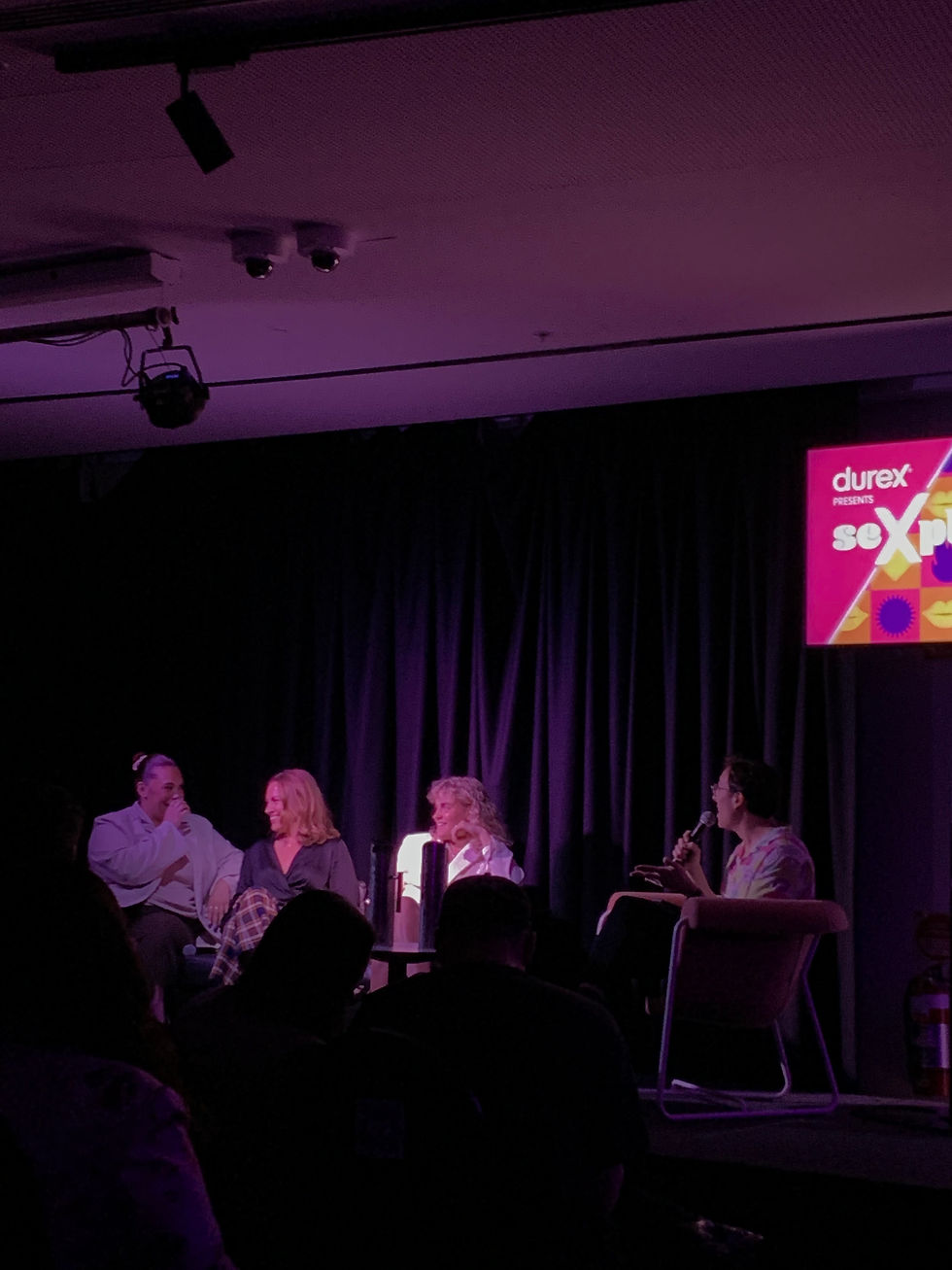How To Enjoy A Crush
- Georgia

- Jul 4, 2022
- 3 min read
Butterflies in your stomach, tight in your chest, saying weird shit, full-body tingles – a crush can do wonders to our physiology. When you see someone you’re attracted to, whether it's a total stranger, someone you see every day, a colleague etc., your brain activates its cognitive network, the region that holds our past experiences, preferences, and self-image. You thought a lil' crush was simple? For anyone who’s had a crush, you’ll know the full-on emotional experience with somatic effects. Falling for someone welcomes a host of new and intense chemicals into our system – hardwiring our brains to act in less than rational ways. There are a few key things that affect the brain and body when you’re falling for someone – let’s learn about them:
Dopamine (the ‘feel good’ hormone) and noradrenaline (‘fight-or-flight’ hormone) are secreted, making us feel excited and energetic – it contributes to the ‘high’ of new love or a crush. Too much of these vital hormones can decrease appetite, increase insomnia and makes simple tasks seem impossible.
Pupil dilation: you’re basically trying to get as much information about someone or something as possible.
Palms are sweaty: it’s likely you’ll experience ‘arousal’ - heart rate quickening, flushed cheeks, sweating - the body is on.
Oxytocin, the ‘cuddle chemical', is released in large amounts, a cutie responsible for bonding, trust and intimacy.
Amounts of serotonin, a mood stabilising and enhancing hormone, drop when we’re in lust – increasing desire and dependency, with studies showing lovers’ chemical concentration of serotonin similar to those experiencing OCD (Marazziti, 2018).
Testosterone and estrogen, two critical sex hormones, are sent into overdrive, with the hypothalamus (an important hormone-regulating part of our brain) stimulating their production from the genitals.
The more we know, the more we can enhance awareness and respond appropriately when in states of crush/lust/love. Let's have a look at some tools to better manage this symphony of body responses...
Understand the process. There’s a lot going on. Dopamine, adrenaline, oxytocin – romantic potential sets our minds alight. By bringing awareness to the somatic and physiological changes that occur when in lust, we can increase our compassion for ourselves and create some distance between the intensity of emotion.
Move through it. Clients will often tell me how physical their experience of a crush is – feeling sick, stressed, clenched or not sleeping. By spending time with your body – either through movement, stillness or somatic processing – we can begin to work out “How can my body feel safe in this experience?” or “Would it be useful to give myself space from thinking about them for a while?”
Make time for self-reflection. No matter your relationship, self-reflection is a critical tool for emotional and sexual wellbeing. What is it about this person that is so appealing and exciting? How does their presence affect how you feel about yourself – more attractive or seen? Perhaps you’ve been longing for this kind of connection? The genesis of the emotion often speaks volumes to the intention and desire attached to it – journal, discuss with a trusted friend or health professional.
It’s not all bad! In fact, having a crush can be an inspiring, exciting and euphoric time. Like a little flirt with a stranger, having a crush can be just that – simple, pleasurable, a beautiful moment of connection even if it is for a brief second. Some people may want their crush to develop into a relationship and others have multiple crushes in their life at any given time wanting nothing more than the thrill of it.
Can you win someone over?!
A quick note on this. When it comes to dating - there’s a lot of talk around trying to win someone over/make them want you. Whilst there is use in learning how to date, build self-confidence or communicate with someone, the concept of winning someone over errs into dangerous territory for a lot of people. It's also important to challenge the language associated with attraction – you don’t win someone when they’re into you – they are not your prize, they are a whole human being and you don’t lose when they’re not into you, sometimes the crush just isn’t reciprocated. Instead of the win-lose approach to crushing, can you focus on shared interests or values, things that set you apart, the benefits of a crush, how your body responds to the stimulus of attraction and intend to enjoy that surge of feel-good neurochemicals (better than coffee IMO)?
Lead image via @charlotte_lapalus






Comments